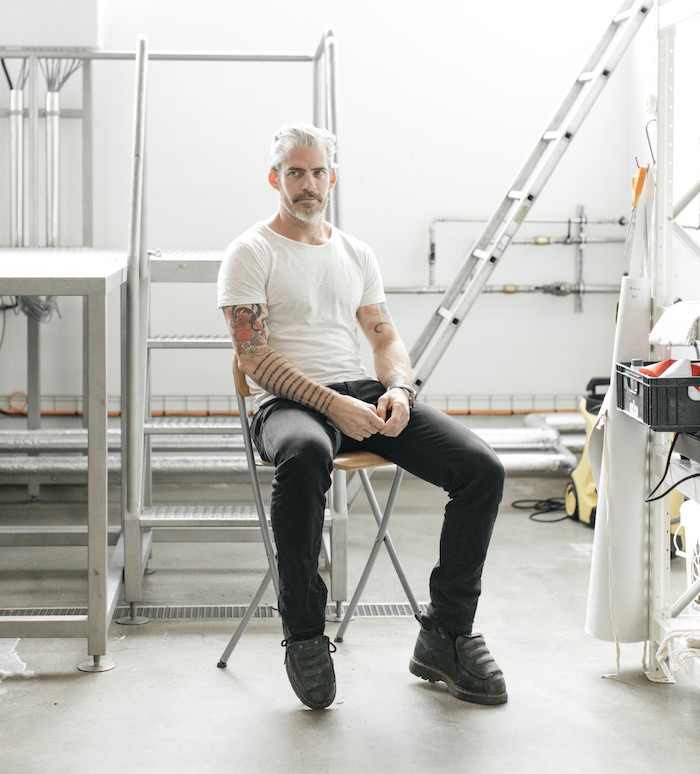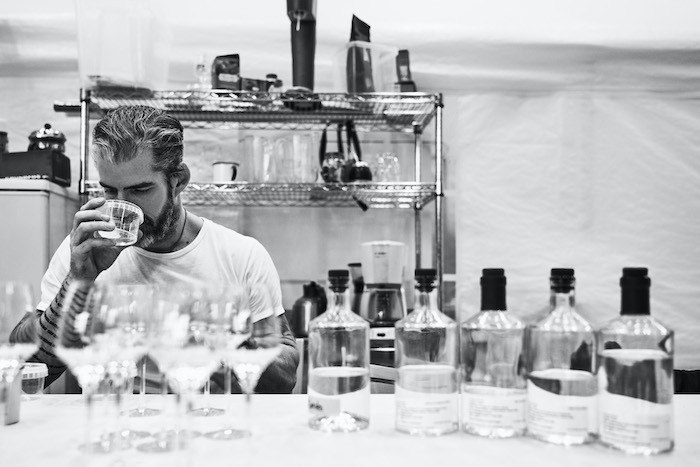
Guest writer Lars Williams of Empirical (and formely of Noma) says spirits should have no rules and no boundaries - flavour is the only currency.
When I began teaching myself about distilling, there were a lot of things I didn’t really understand or that didn’t feel honest to the way that I wanted to work and had been working all my life. Things that felt antiquated, locked in a stagnant parody of itself, compared to the introspection and development that has happened in restaurants, breweries, and wineries.
Why were distilleries locked into these rather arbitrary-seeming categories? Why didn’t they wax poetic about the flavour lent by fermentation, the complexity, and nuance of the esters and polyphenols that yeast create, and the integrity of using the best possible ingredients as brewers do? This fermentation, one of the first critical steps in the process, seemed to be a black box, just a means to an end. Why don’t they talk about the grains and the farmers they collaborate with? Why were the seasons not represented? Why were there no vintages; in the way that there are in wine? Why were all the stills replicas of technology developed 600 years ago?
That constant questioning, always asking why, are we doing something just because the person before did it like that? Is that the best we can do? What if we became uncategorized?
My thinking process was to try and take all the time, skill and innovation previously plied towards a perfect meal in a restaurant for 40 people, and use those same tools to create a new lens. This shaped a way to preserve a moment of time and place, liquid impressions that could be sent anywhere to be shared. It was also a way to democratize a passion - in a restaurant the experience is about time and place; a brief moment which is evanescent, like live music or a play… which is integral to its beauty. But I became obsessed with the idea of capturing that beauty and being able to share those memories, trapped in bottles, as if they were dreams rattling around in a suitcase, waiting to be uncorked.
For me that gift of a new sense memory, a new flavour starts my mind spinning, cavorting, dancing in unfamiliar movements. Just as hearing a new piece of music, watching dance or performance art, or seeing a brilliant painting or sculpture does. It is that paradigm shift into the border of novel and unfamiliar that jolts us out of the everyday into evolution.

We automatically execute most of our everyday, monotonous acts (opening doors, buttoning shirts, etc.) without any explicit realisation of the learned movements and thus memory involved, unless something is amiss (the door sticks, the button is missing). With flavour, the same is true; people generally just consume without much awareness of how ingrained their likes and dislikes are - unless there is a nudge, a shudder in their everyday.
So the best way to trigger the direct emotional response is to juxtapose the implicitly familiar with the novel - that is to say, orchestrating flavours to some novel combination, but somehow evoking a delighted childhood memory. Often these seem to be universal - walking through the forest, having surf wash up between your toes, the goofy grin of an infant tasting ice cream for the first time. And then, if one can generate fluctuations in that flavour so that it has length, depth, and breadth, punctuated by peaks along the narrative arc, then it’s successful, an exploration that can continually stimulate the contrast between novelty and memory.
A part of my creative journey has been to attempt to fill myself with as much wisdom and experience as possible, but still be able to approach new projects with a childlike curiosity, leaving behind the detritus, the self-inflicted boundaries that limit new thought. So, I ruminated, what if we made booze as if we’d never had it before? Not trying to go back to some hundred-year-old recipe, but to rethink things from the beginning. What would the cascade of choices become?
At the end of the day we are craftsmen; we strive to be better tomorrow than we are today. And to share the work we do and through that work, connect people. Ultimately deliciousness is our currency; it is within deliciousness that we innovate, push forward, evolve, and support each other to new heights.


